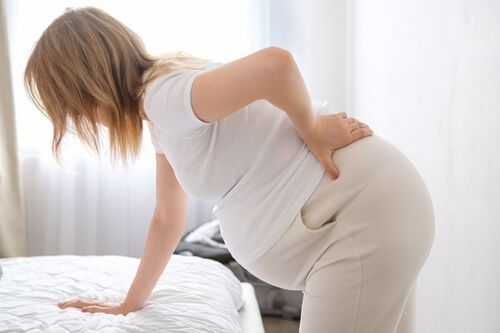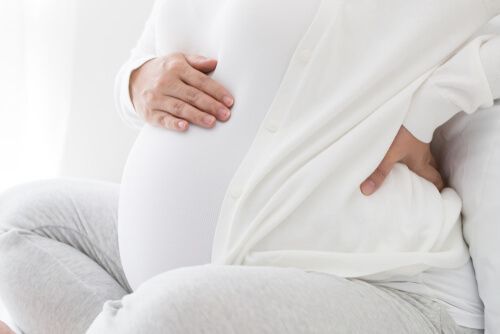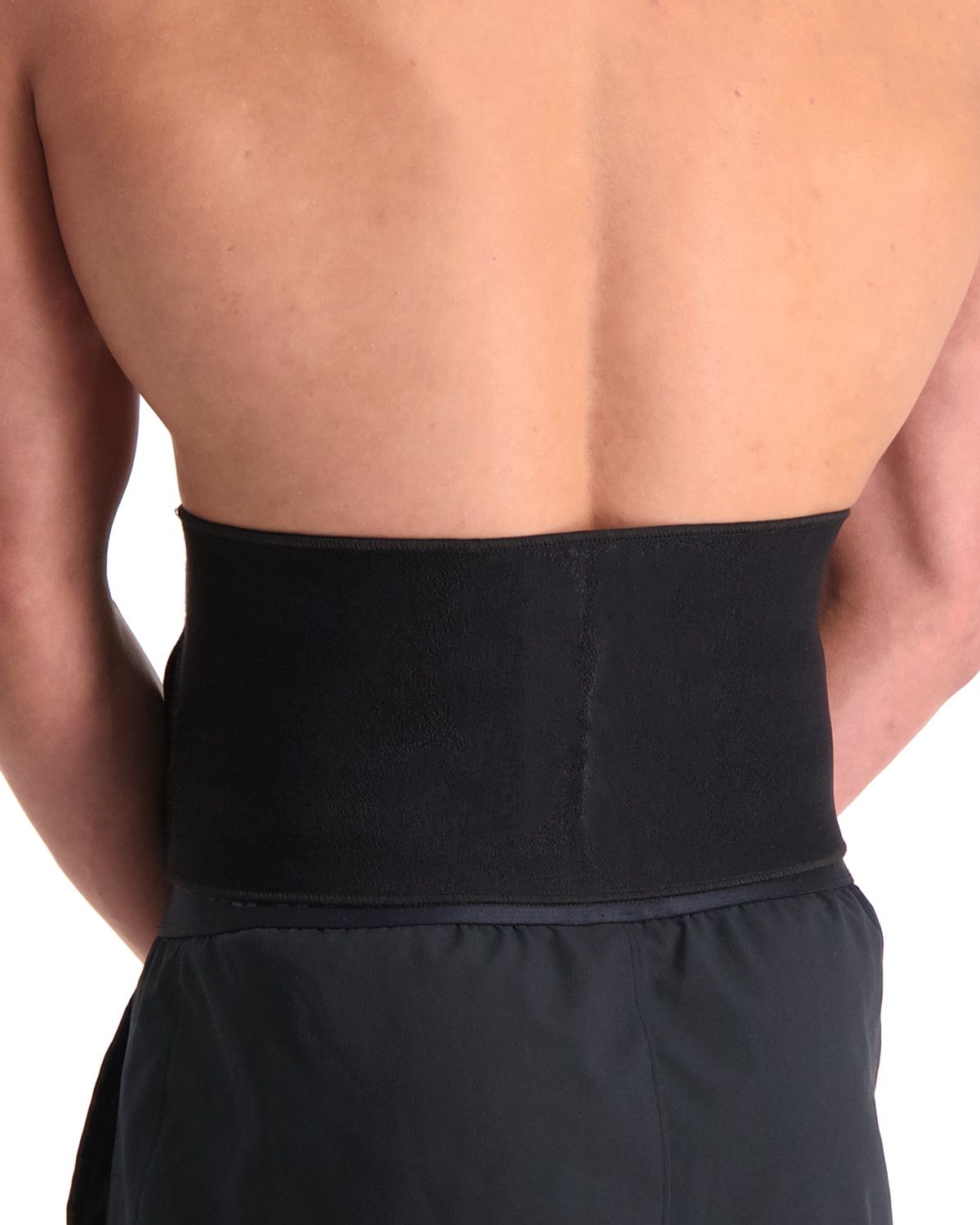Pregnancy Back Pain
Many pregnant women experience back pain during pregnancy. Not only the weight gain during pregnancy, but also the hormonal changes contribute to back pain. The hormone progesterone causes the joints to become looser during pregnancy, including the connection between the tailbone and the pelvic bones. Normally, this area shows hardly any movement, but during pregnancy, it becomes more mobile. This can cause nerves to become pinched more easily, leading to pregnancy-related back pain. Back pain during pregnancy is very common and can often be relieved with exercises or aids such as a back brace.
Do you have back pain or pelvic instability?
Many pregnant women develop back pain after sitting, standing, or walking for a prolonged period. The pain often radiates from the lower back to the buttocks, legs, and pubic bone. Back pain is more common than pelvic instability and is much easier to treat. In the case of pelvic instability, we recommend using a pelvic support belt.

Should I see a doctor for back pain during pregnancy?
Do you have persistent back pain? Then be sure to see your doctor. The doctor will quickly determine whether your back pain is coming from the back or the pelvis. Contact your doctor immediately if you experience sudden, severe pain. Also, see your doctor if you experience numbness or tingling in the legs, as this may indicate pelvic instability. If the lower back pain radiates upward or to the sides, a visit to your doctor is advised, as this may be a sign of a bladder infection or kidney problem. If you suddenly experience severe back pain during your third trimester, especially if you haven’t had it before, contact your midwife. This could indicate early contractions.
Tips to prevent back pain during pregnancy:
- Stand up straight. Give your body extra support by slightly pulling in your belly. Engage your glutes. Avoid standing for too long at a time. If you have a standing job, take a long break halfway through the day. Put your feet up.
- Sit upright if you have a desk job. Make sure your legs are at a 90-degree angle. Get up and walk around every 30 minutes.
- Wear good shoes without high heels.
- Lift using your knees.
- Carry groceries in two bags to maintain balance and reduce the risk of back pain.
- Get out of bed carefully. First roll onto your side, bend your knees, and use your arms to push your upper body up.
- Take your back pain seriously. If certain activities cause you back pain, avoid them.

Pay extra attention to your posture during pregnancy
Try to maintain your natural posture as much as possible. As your belly grows, pregnant women tend to walk with their belly pushed forward (arched back). This puts a lot of strain on the back. Try to make it a habit to pull in your lower belly slightly. Of course, you won’t be able to really pull in your belly as it grows, but you can always keep a bit of tension on the muscles. In addition, it helps to tilt your pelvis slightly backward. Bring your hip bones back a little and your pubic bone forward, you’re essentially flattening your lower back slightly.

Bauerfeind Sacroloc Back Support - Pelvic Belt

Super Ortho Pregnancy Support Belt - Pelvic Brace

Super Ortho Ceramic Magnetic - Magnetic Back Support

Viofix Lower Back Support - Pelvic Belt

Dunimed Back Support (without Busks)

Gladiator Sports Back Support

- Physiotherapist
- Sports podiatrist
- Manual therapist
- Podopostural therapist
- Myofascial dry needling specialist


